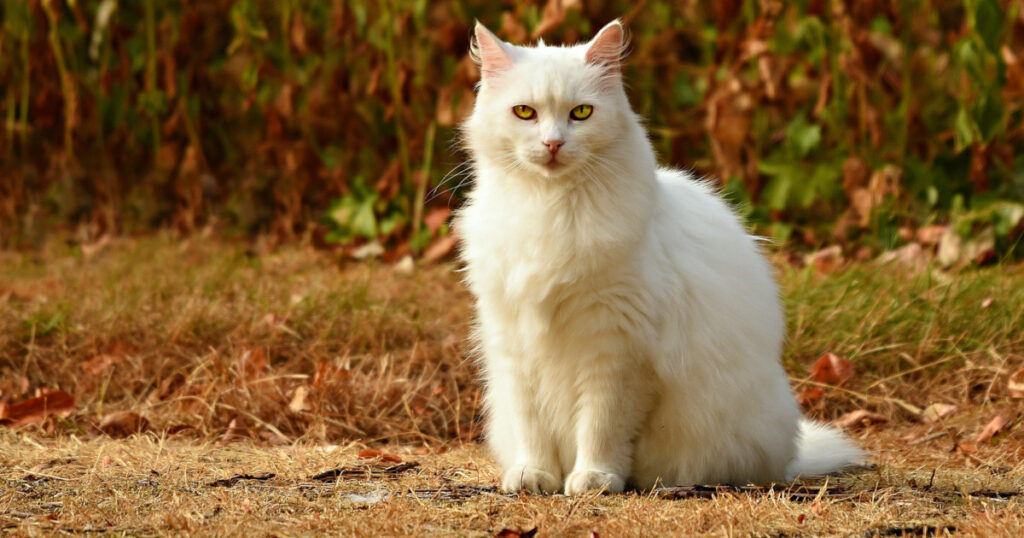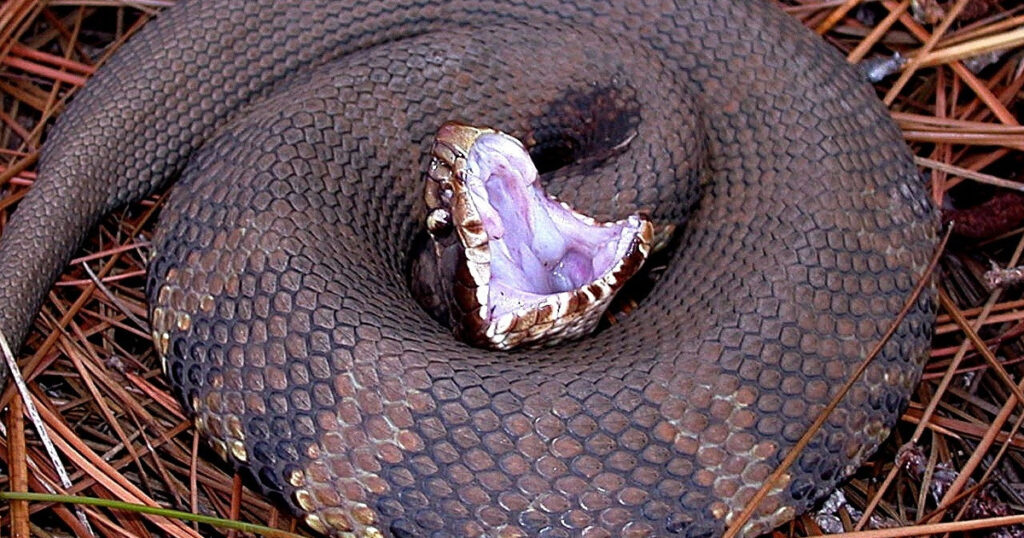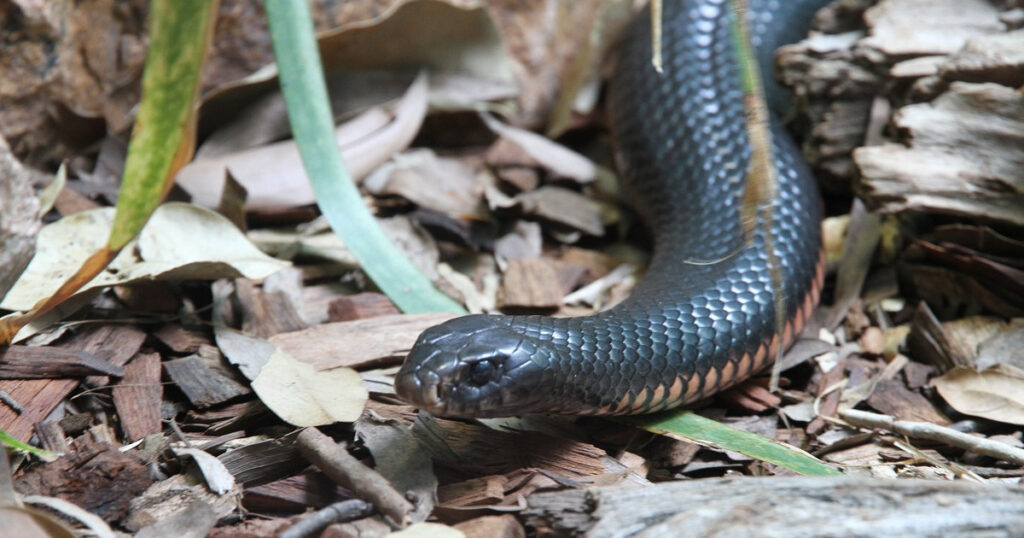Cats are a very popular pet with nearly 32 million US households owning over 58 million pet cats. Only dogs beat them for the most popular pet in the United States. However, cats are also more independent, often prowling suburban areas or rural locations throughout the day and night. As a result, they can sometimes come into contact with snakes. But do cats eat snakes? Or is it the other way around?
Do Cats Kill Snakes?

Snakes do see cats as natural predators and therefore, will often avoid areas where they know cats are. They often try to flee the area if they see a cat.
However, there are times when a cat might surprise a snake. If a snake is surprised by a cat, a confrontation can happen where the cat will attack the snake. The cat may kill the snake, but the chances are low that a pet cat will eat the snake, especially if it is well-fed.
The number of times this happens is unknown. Cats who are outside are often not monitored and snakes are very secretive. If a cat does kill and leave the snake’s body, then a scavenger like a bird, fox, or raccoon is likely to eat the snake at a later date.
Feral cats are more likely to eat a snake, especially if they’ve not eaten for a long time.
Can a Snake Kill a Cat?
Cats are fast, effective predators and one of the most successful hunters. However, they are not perfect, like any predator in the wild. There are going to be times when a cat takes on more than it is able and the snake will get the upper hand.
In most cases, this will just be a bite on the cat that will heal in time. However, if a snake is venomous, then there are certain risks. Snakes like the copperhead (agkistrodon contortrix), cottonmouth (agkistrodon piscivorus), or any of the rattle family can bite a cat with a small amount of venom that will affect them.
Are Cats Immune to Snake Venom?

There are some myths online that cats are immune to snake venom. However, this is not true. Cats are more resistant to snake venom than dogs (and humans). Research in Australia has shown that cats are twice as likely to survive a venomous snake bite.
However, that doesn’t mean that cats are immune. A third of snake bites can kill a cat.
If you’re worried that your cat has been bitten by a snake, then you should look for symptoms that include:
- Moving in a motion that looks like bunny hopping.
- Dilated pupils.
- Loss of bowel and/or bladder control.
- Sudden weakness.
- Shaking or twitching.
- Paralysis.
If you see any of these symptoms, then you should seek veterinary care immediately or follow our guide on how to deal with a snake bite at home.
A cat is rarely eaten by snake species found in the United States. Snakes do not chew food, they must swallow their prey whole and can only eat prey items that are only one and half times their widest point. Even then, snakes are reluctant to eat something that large often.
When cats have been eaten by a snake it is often when there are larger snakes present. In Florida, where there are lots of escaped Burmese pythons (python bivittatus), this is the greatest risk. However, most places in the USA don’t have this problem.
It is important to note that few pet snakes are released into the wild. The Florida Burmese python population is there because of damage caused to a breeding center when Hurricane Andrew hit the state.
Are Snakes Afraid of Cats?
Snakes are typically scared of any predator that can kill them. Cats are a predator of snakes and therefore snakes are frightened of them. Most cats bitten by snakes are because the cat has become curious and the snake has defended itself.
Snakes will generally remain hidden when they know cats are around, hiding in locations where cats might find it challenging to get access, like cracks in the wall.

Do Cats Keep Snakes Away?
If cats are regularly in an area and are scenting the areas for territory, then cats can keep snakes away from an area. However, it is not a foolproof option and there is still the potential that snakes and cats come into contact with each other.
And this is when cats can be put most at risk. Even a small bite can be painful for the cat and could become infected. So any bite should be checked out by your local vet.
How to Keep Cats and Snakes Apart
There are numerous ways you can keep cats and snakes apart easier. Here are some of the top options.
Cat Bell – Using a bell on a collar warns the snake, and other wildlife, of the cat’s presence, allowing them to flee.
Limit Time Outside – Ensure cats aren’t outside unsupervised. This plan is often recommended as cats kill 2.4 billion birds in the USA yearly.
Envirobug – Using an ultrasound snake repellent is a great way to keep snakes away from your property, where your cat will probably spend most of its time. Envirobug is ecologically friendly and will not harm a cat or other local wildlife.
Keep Pests to a Minimum – Cats and snakes both hunt rodents. Most snake species hunt rodents for food. Therefore, keeping pests to a minimum on your property will reduce the appearance of snakes on your property.
Lemongrass – Cats love lemongrass, but snakes really don’t like the plant and will often avoid it. Therefore, planting lemongrass in your garden can keep your cat attracted to the garden while discouraging being used by snakes.
Do Cats Eat Snakes At All?
Cats and snakes are not the best of friends. Both of them are attracted by the same prey items, but snakes regularly see cats as potential predators and are therefore afraid of them. If they do come into contact, the snake can be killed. But a venomous snake can bite and kill a cat. So the best option is to try to minimize the chances the two come into contact.